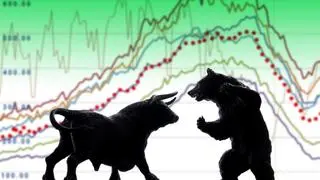It’s no coincidence that after the 2008 financial crisis rocked the world, participation in the capital markets in India dropped significantly. A good way to measure this is to simply see how many companies went public annually since 2007. Here’s a table that shows the number of successful IPOs (Initial Public Offering) launched annually since 2007.
The fall since 2007 to 2013 is nothing short of staggering as the number of IPOs had dropped 64 per cent. The amount raised in 2013 is just 5 per cent as compared to 2007. How does this relate to the future and what is expected now that the election results are out?
IPOs issued over the past seven years suggest that investors lost faith in the markets. Private companies decide to go public only in a bull market for easy fund raising and better valuation. However, no firm wants to go public in a bear market . Justdial that went public about a year ago is a good example. The stock price has jumped 110per cent, from its initial price of ₹589. Now what if Justdial had issued its IPO right before the financial crisis crippled the markets in 2008? No matter how good a company might be, when a market takes a heavy fall on a macro-economic level, there is very little an individual firm can do to prevent share prices from falling.
Revival in the air Over the past week, firms have already started raising funds through the secondary markets. Post election resultsfirms rushed to raise fresh equity in the hopes for a market rally. HDFC Bank, for example, is already in the process of raising $2 billion through the secondary markets by issuing fresh equity, both domestic and abroad. More big firms are following suit.
When a large number of firms start raising funds by issuing equity, it generally leads to a fresh wave of IPOs. All in all, the combination of fresh equity being issued and new companies being listed on stock exchanges leads to one conclusion: we are in the midst of a revival of participation in the equity markets.
The lack of participation in the equity markets since 2007 has been alarming. While many have shifted their focus to derivatives such as Nifty Options, it is shocking to see that while 2010 produced an average of ₹19,000 crore of daily equity turnover across the BSE and NSE, the first four months of 2014 witnessed an average of just ₹14,300 crore of daily turnover across the two exchanges.
With the election results, expect those numbers to change very quickly. Since May 5, the average daily turnover across the BSE and NSE has been close to ₹25,000 crore and there seems to be no reason for that number to come down anytime soon. India badly needs equity participation to pick up. As of now, barely 3-5 per cent of Indians invest in the capital markets in one way or the other. With Modi’s win, we can hopefully expect things to change for the good and for investor awareness and participation to grow.








Comments
Comments have to be in English, and in full sentences. They cannot be abusive or personal. Please abide by our community guidelines for posting your comments.
We have migrated to a new commenting platform. If you are already a registered user of TheHindu Businessline and logged in, you may continue to engage with our articles. If you do not have an account please register and login to post comments. Users can access their older comments by logging into their accounts on Vuukle.